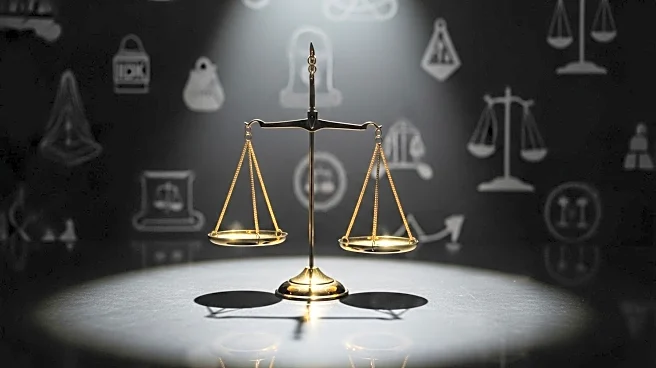What's Happening?
The Supreme Court's shadow docket, traditionally a lesser-known aspect of its operations, has become a focal point for significant legal decisions. The conservative majority on the Court has utilized this docket to issue emergency orders that effectively alter long-standing precedents without full hearings. This approach has allowed the Court to make swift decisions that favor the administration's policies, bypassing the usual judicial processes. Critics argue that this undermines the Court's legitimacy and the rule of law, as these decisions often lack detailed explanations and are not subject to the same scrutiny as regular cases. The shadow docket has been used to influence decisions on agency leadership and other significant legal matters, raising concerns about the Court's role in shaping policy without transparency.
Why It's Important?
The use of the shadow docket by the Supreme Court has significant implications for the U.S. legal system and its stakeholders. By making decisions without full hearings, the Court can rapidly implement changes that affect public policy and governance. This method of decision-making can lead to a lack of accountability and transparency, as the rationale behind these decisions is often not fully disclosed. The potential for the Court to influence major legal and policy outcomes without thorough examination poses a risk to the balance of power and the integrity of the judicial process. Stakeholders, including legal professionals, policymakers, and the public, may find it challenging to navigate the legal landscape when precedents can be altered without comprehensive judicial review.
What's Next?
The Supreme Court's continued use of the shadow docket may prompt calls for reform and increased transparency. Legal scholars and policymakers might advocate for changes to ensure that significant decisions are subject to full hearings and detailed explanations. The Court's approach could also lead to increased scrutiny from the public and media, potentially influencing future judicial appointments and the Court's long-term reputation. As the Court faces decisions on critical issues, its use of the shadow docket will likely remain a contentious topic, with potential implications for future legal and political developments.
Beyond the Headlines
The ethical and legal dimensions of the Supreme Court's use of the shadow docket highlight broader concerns about judicial independence and the separation of powers. The Court's ability to make impactful decisions without full transparency raises questions about its role in a democratic society. This development could lead to long-term shifts in how the judiciary is perceived and its relationship with other branches of government. The potential for the Court to influence policy through expedited decisions may also affect public trust in the judicial system and its commitment to upholding the rule of law.











